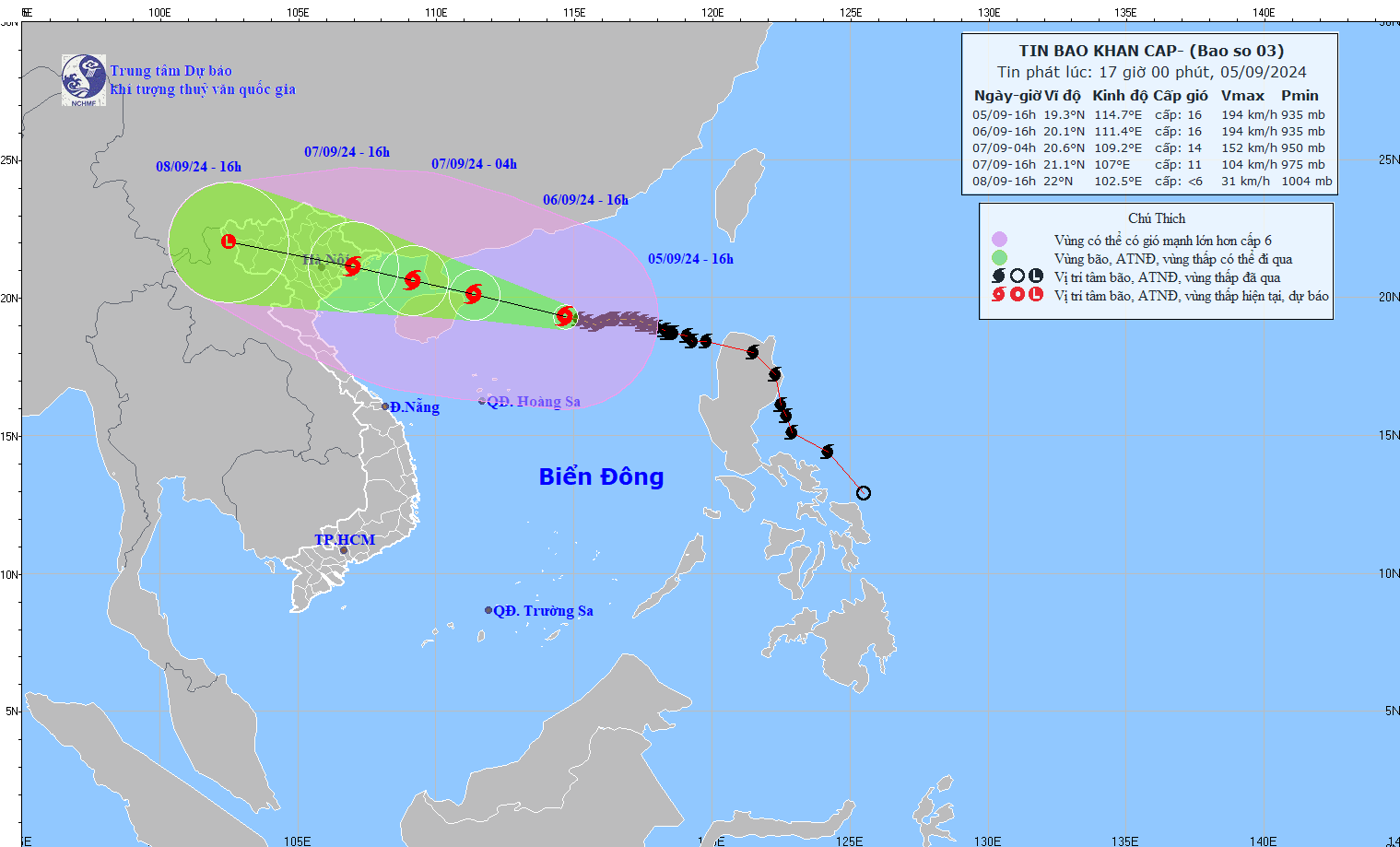HCMC – Super typhoon Yagi is forecast to make landfall in Vietnam’s northern coast from Quang Ninh to Nam Dinh provinces on September 7 with packing winds of levels 10 to 12, and gusts of up to level 14, according to the National Center for Hydro-Meteorological Forecasting.
At 5 p.m. today, September 5, the eye of the typhoon was spotted about 400 kilometers east of Hainan Island (China), with winds at level 16 and gusts of level 17. It is now seen as the strongest storm in the Northwest Pacific in the year to date.
In the next 24 hours, the storm is predicted to move west-northwest at about 15 kilometers per hour, with little change in intensity.
By 4 p.m. on September 6, the eye of the typhoon will be over the northeastern waters of Hainan Island (China), about 450 kilometers east-southeast of Quang Ninh, with winds at level 16 and gusts at level 17.
By 4 p.m. on September 7, it will make landfall between Quang Ninh and Nam Dinh provinces, with winds of level 10-11 and gusts reaching level 14. The storm will move west-northwest at 20 kilometers per hour and gradually weaken.
The northern East Sea will experience strong winds and rough seas, with winds reaching levels 15-16 near the storm’s eye.
From the night of September 6 to the morning of September 9, the northern region and Thanh Hoa may experience heavy rainfall, with some areas seeing torrential rain and thunderstorms.
Total rainfall is expected to range from 100 to 350mm, with some areas exceeding 500mm. The heaviest rain will occur in the northeastern part of northern Vietnam on September 7, and in the northwestern part from the evening of September 7 to the night of September 8.
In a meeting this afternoon, a representative from the National Center for Hydro-Meteorological Forecasting noted that Yagi is an extremely powerful storm, with a large area to be affected.
Flash floods could strike the mountainous provinces, midland and delta regions of northern Vietnam, urban areas, especially in the provinces of Quang Ninh, Haiphong, Lang Son, Cao Bang, Ha Giang, Yen Bai, Bac Kan, and Thai Nguyen, he said.









